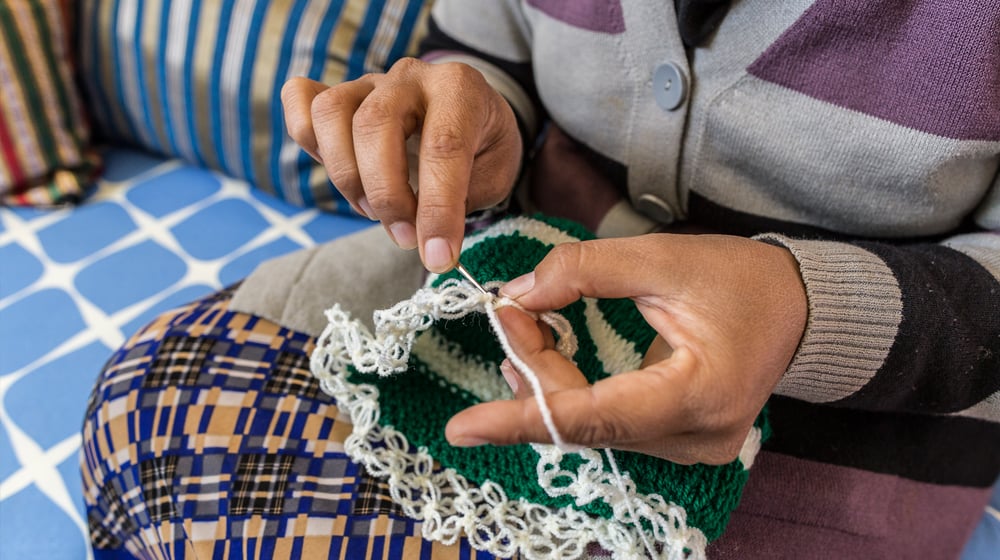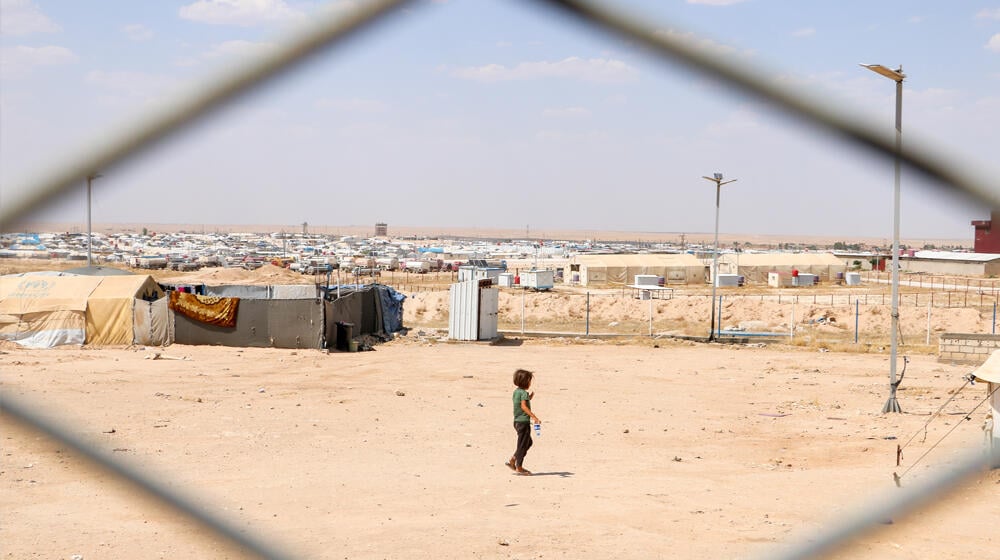"I've loved singing since I was a child,” says Nadia, a 24-year-old resident of one of the camps in northeastern Syria. “It is my way of expressing my feelings and thoughts."
Since 2019, Nadia has called this sprawling refugee settlement home, her arrival coinciding with her husband's imprisonment. Residents of Athis camp are forced to contend with a plethora of challenges, including harsh desert conditions, lack of electricity and clean water, poverty, and scarce employment opportunities. These hardships temporarily silenced Nadia's song, until the opening of a nearby Women and Girls' Safe Space offered a glimmer of hope.
A childhood marred by tragedy
Nadia's journey with music began at the tender age of six, following her father's untimely death. Singing became her solace, a means to navigate the complex emotions of loss. As life's pressures mounted, her musical refuge only grew in importance.
Three years after losing her father, Nadia and her siblings faced another devastating blow: their mother's kidnapping in Iraq. This cruel twist of fate stripped them of their remaining sources of safety, support, and love.
"I was forced to drop out of school to escape the stigma and bullying from my classmates," Nadia explains, her voice tinged with lingering pain. By 14, Nadia found herself a bride, and two years later, a mother. "The marriage was my grandparents' decision, not mine," she reflects. "If my parents were alive, they wouldn't have allowed it. They wanted me to continue my education."
Today, Nadia is mother to two children, aged eight and six.
The power of self-belief
Despite her truncated formal education, Nadia's thirst for knowledge remained unquenched. She embarked on a journey of self-education, honing her reading and writing skills through sheer determination.
"I spent most of my free time at home, absorbing everything I could get my hands on to develop my academic skills," Nadia explains proudly. "That's why I can read and write now."
Over several months, Nadia received psychosocial support, case management services, and participated in English language

and sewing courses. "The assistance I received helped me recover my mental health and regain my footing," Nadia says. "I rediscovered my confidence and true self, allowing me to return to the activities I love, especially singing."
This newfound literacy ignited a passion for literature and cultural topics. "Reading has enhanced my knowledge and strengthened my personality," Nadia asserts. This inner strength fuels her continued dedication to singing, even in the face of societal disapproval within this camp.
Nadia is acutely aware of the challenges she faces. While she refuses to engage in open conflict with the camp's more extremist elements, she remains steadfast in her dream of becoming a singer.
"Some women and girls who visit my tent believe singing is forbidden. They've threatened to shun me if I don't stop," Nadia confides. "So I sing very quietly in my tent, ensuring my neighbours can't hear."
Since early 2024, 530 women like Nadia have benefited from individual and group psychosocial support, while over 600 have participated in vocational training and life skills courses.
The journey towards a dream
Undeterred, Nadia has begun transcribing songs to practise in her tent, honing her vocal skills and performance. She envisions herself one day singing on stage before an audience. In fact, her ambition has led her to reach out to TV channels and radio stations.
After several rejections, I finally succeeded in participating in two radio shows, sharing my songs and experiences with listeners,
Nadia says, her eyes glistening with pride. Her ultimate goal? To become a renowned singer, recognised worldwide.
The United Nations Population Fund (UNFPA) plays a vital role in this camp, operating four women and girls' safe spaces and a maternity clinic. These facilities provide essential reproductive health services and support for gender-based violence survivors, offering antenatal and postnatal care, family planning, psychosocial support, and more.
Since the beginning of 2024, around 19,000 individuals have benefited from these services in this camp, which houses approximately 40,000 refugees and internally displaced people.
Nadia's story is a testament to the resilience of the human spirit and the transformative power of support and education, even in the most unfathomable circumstances.



